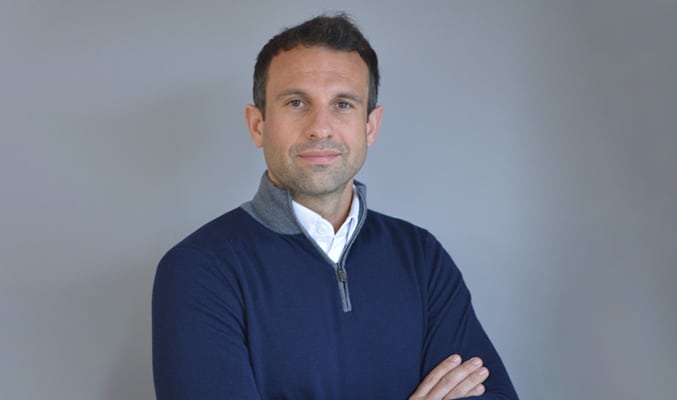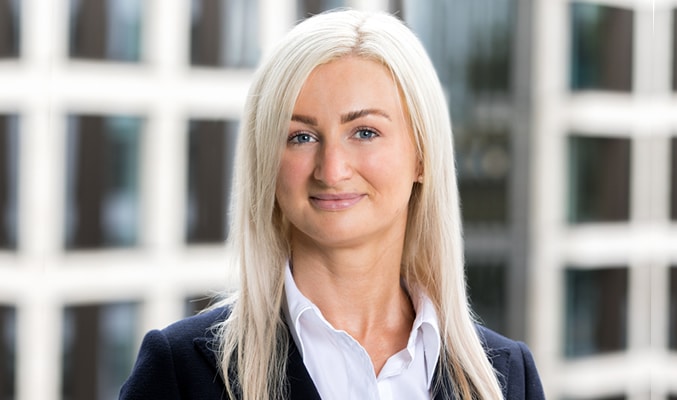Bridging sector steps up to mental health challenge
By Leah Milner
The pandemic has put mental health into sharper focus than ever before and companies across the bridging sector have been looking at ways of supporting their staff through challenging circumstances.
Whether it is anxiety about catching the virus, bereavement, economic uncertainty, redundancy fears or the practicalities of working remotely while home-schooling kids, there are so many pressures that individuals have faced this year.
Business owners across the property sector have also been under incredible strain as they have sought to trade through lockdown, navigate the furlough scheme for their employees and reconfigure their operations to allow staff to work from home.
After the first lockdown eased, firms tried to adapt their offices for colleagues to return in a socially-distanced manner. Then when the property market reopened, companies faced a sudden surge in demand from sales that had been put on hold over the previous months.
This spike in activity was then super-charged by the chancellor’s stamp duty holiday announcement which spurred buyers into action.
Many brokers, solicitors and lender staff report that they have been working 12-plus hours a day to try and keep up with their caseload.
Now, amid a second lockdown, the government advice has shifted back to “work from home if you can”, meaning firms are once again trying to manage their staff remotely.
But there is relief that at least this time around the property market has not been shut down and people can still move house.
Working parents have been hugely helped by the fact that schools remain open, albeit that children are frequently forced to self isolate at home whenever there is an outbreak of the virus among their classmates.
Research by Crystal Specialist Finance carried out between August and September provides an insight into how the wellbeing of advisers has been impacted by this exceptionally demanding year.
In its survey of 100 external brokers, Crystal found that 87 per cent of respondents say they often do not get the recommended eight hours sleep per night, while 62 per cent say they only do so on less than half the nights of the week.
Worryingly, more than 23 per cent of respondents say they never get the recommended amount of sleep.
Advisers were also asked about their level of contentment with their careers. The specialist distributor found that 35 per cent of brokers were only “moderately content” while 16 per cent felt “totally disillusioned” with their working lives and were considering other options.
The remaining 48 per cent reported feeling “happy with how things are going” or said they “love” what they do and their “career is progressing well”.
Amid all these challenges, Bridging Loan Directory has been speaking to firms across the sector to find what they have been doing to help their staff feel connected and to promote mental wellness.
During the first lockdown, MT Finance director Joshua Elash thought it was important to give employees the chance to get professional mental health support if they felt that they needed it.
He says: “We commissioned an external psychotherapist and reached out to all of our members of staff to let them know that this service was available to them free-of-charge.
They essentially had an on-call therapist, so that if they had any problems with anxiety, if they were feeling lonely, if they were having any issues with alcohol, whatever it might be, they had someone independent who they could speak to in complete confidence.”
Elash says the company may bring the counselling service back if there is more demand as the pandemic unfolds.
However, he says that the second lockdown feels very different to the first for several reasons: “One of the biggest challenges last time was the uncertainty.
This time around we have a much better idea of what to expect so psychologically we are not going into the unknown.”
Another huge change is that the housing market has remained open this time around and financial services firms have been allowed to trade as normal.
While the majority of MT Finance staff are working from home a small number of individuals have wanted to spend at least some time in the office every week for the sake of their mental health, Elash explains.
Like Elash, VIBE Finance director Kim McGinley also feels that her close-knit team was in a stronger position going into the second lockdown than they were for the first.
“People are splitting their time between working from home and coming into the office in Fareham and because there are only four of us it is easy to social distance.”
She believes that spending at least some in-person time among colleagues is important for mental health.
“Lockdown feels totally different this time around. We are all a lot more resilient and prepared, but also the fact that kids are back at school means that parents are relieved of that pressure to homeschool at the same time as trying to work.
With the housing market remaining open this time around we are really busy and while that is not without its stresses, the momentum is good for morale.”
While it is impossible for small firms to afford the kind of comprehensive employee wellness programmes that many large corporates are able to offer their staff, McGinley did want to source some additional support for employees.
She recently introduced a benefits scheme called Perk Box, which includes four free sessions with a counsellor plus access to a 24/7 helpline and a subscription to a meditation app.
Staff can also contact an online GP via the platform if they have health concerns.
For The Bridging Group joint managing director Dawn Trustam, the close bond between the firm’s staff of six has been one of its key strengths.
“We do class ourselves as like our own little family. In some respects, I think Covid has brought us even closer together and I’m very privileged and humbled by the team that we have got.
I think it is easier for smaller companies to be able to keep an eye on mental health issues and make sure that everybody is okay.
Where there is a problem we try to work through it together.”
Like others, Trustam feels that remote working has brought with it many advantages such as cost savings and greater flexibility around family life, but there are undoubtedly drawbacks.
“I must admit that from my perspective, I was very excited about being able to work from home to start with and I do still enjoy it, but I really miss seeing people.
It is silly things like when you’ve got a complicated case you can pop your head up over your screen and talk it through with someone.
It’s important to be able to have a laugh as well and although we do still have camaraderie through our video calls, it is not the same.
We do actually see ourselves going back into an office, but probably not until the middle of next year.”
However, Trustam says that if they do return to an office it won’t be on a 9-5, five-days-a-week basis, but rather on a more flexible timetable to suit everyone. In the meantime the team are planning for a virtual Christmas party.
Crystal group sales and marketing director Jason Berry also feels that maintaining social interaction is crucial for colleagues who are working remotely, rather than only providing forums for business-related chat.
He says: “Our staff are talking solicitors, they are talking to brokers and they are talking to clients – they are spending most of their time talking to people.
But ironically, it can still feel pretty lonely. Ensuring that there is also space for social engagement is really important.”
Crystal has embraced the move towards remote working and Berry says that only a few members of staff now work from the company’s Tamworth headquarters.
Before the pandemic, the firm had been planning to move into larger premises but Berry says this is no longer on the agenda as employees have welcomed the transition to home working.
It also provides the business with greater flexibility to recruit staff from outside its normal geographic catchment area and save money on the running costs of a building.
Instead Berry is focussing on other ways to foster a sense of community among physically-distanced colleagues.
He is working on a quarter-yearly virtual wellbeing webinar in partnership with Mind to share advice and inspiration.
The first of these is scheduled to take place in December. Crystal’s relationship with the mental health charity is also set to involve fundraising events, which are a further opportunity for team building.
The firm has introduced Wellbeing Wednesdays, which bring staff together by video link for an hour each week to participate in various group activities including yoga, designing the company Christmas card and a bake-off contest.
Every fortnight there is also a “cuppa and catch-up” session for non-work chat.
In 2021 Berry is planning to launch a mentoring programme, where brokers are paired with people in the industry who can offer them support and guidance relevant to their own journey.
Mentors will vary from senior figures in the sector to the heads of directly authorised firms who can help those starting out on their own for the first time.
Similar to Crystal’s link-up with Mind, Shawbrook Bank chose Mental Health UK as its charity partner for 2020/21 to reflect its commitment to the cause.
The lender says it supports its employee’s wellbeing through a benefits package which includes private medical insurance, a confidential telephone support service, mental health awareness training and online resources.
This year it is also offering staff subscription to the Headspace meditation app to help with stress management and its Motivational Mondays and Wellbeing Wednesdays provide employees with activities and support to boost their fitness and mental health.
Group human resources director Debbie Griffin says: “We have been proactive in launching a number of initiatives aimed at improving employee welfare for several years now.
Our dedicated wellbeing working group has been accompanied by a Wellbeing Slack channel with over 400 members taking part regularly.
This equates to more than 50 per cent of our staff and has proved to be a vibrant hub of ideas and acted as a general support network for colleagues who may be finding times tough for various reasons.”
Griffin says that Shawbrook will be looking at how else it can assist colleagues in the months ahead.
Brightstar director of people development Clare Jupp says that the second lockdown has been a different ballgame as an outbreak of Covid at the firm’s Billericay office has brought the pandemic closer to home.
She says: “In total, including partners and children, we had 15 cases that we think were all directly related to the original case.
I was included in this statistic and some of us had it pretty badly. With members of staff becoming ill that puts a lot of pressure on families who also have to isolate and are unable to work or go to school.
We had an increase in anxiety about working in the office and about the virus in general, as this time it seemed to have touched us personally whereas before it hadn’t.”
Jupp says that when the office reopened following a two-week closure, Brightstar encouraged the team to work from home but there were some people who felt they couldn’t cope with another period of isolation.
Others did not have a suitable domestic set-up or they struggled with the lack of boundaries and the need to set a clear divide between their working day and time at home.
Brightstar has always taken a proactive approach to staff mental health, by running one-to-one coaching sessions to support colleagues, wellness days and campaigns.
The company had been planning a day to train a new cohort of Mental Health First Aiders, but this had to be postponed into 2021 because of the pandemic.
Jupp says: “The key thing is to ensure that our team know that they work in a supportive, open environment where it is ok not to be ok.
We convey these messages through our written communications, through constant reminders in online meetings and in our regular internal newsletter.
Our chief executive [Rob Jupp] is extremely open about his own frailties and his involvement with events and social media reinforces to the team the powerful message that we are an organisation that recognises, accepts and supports those with mental health issues.”

Leah Milner is an award-winning money, property and consumer affairs journalist who has written for titles across the national and trade press. She is also passionate about improving mental health awareness and regularly speaks on the subject at events. You can follow Leah on Twitter @leahmilner.











You must be logged in to post a comment.